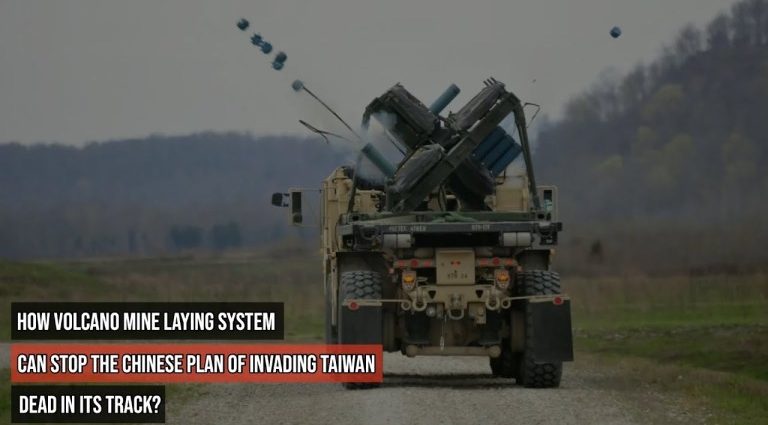The United States plans to provide military assistance to Taiwan through presidential drawdown authority (PDA), a tool which allowed the Biden administration to send arms to Ukraine without going through the Congress – and China doesn’t like it one bit.
US Defense Secretary Lloyd Austin said Tuesday that the US will soon send additional security assistance to Taiwan through the PDA that the Congress authorized last year. The White House said earlier this month that it will send US$500 million worth of weapons aid to Taiwan using the PDA.
According to a US government website, the PDA is a valuable tool of US foreign policy in crisis situations as it allows for the speedy delivery of defense articles and services from Department of Defense stocks to foreign countries and international organizations to respond to unforeseen emergencies.
“Such assistance can begin arriving within days, or even hours, of approval,” the US government said in a fact sheet on May 9.
Last year, the US Congress increased the cap on the PDA from US$100 million to US$11 billion for fiscal year 2022 after the Ukrainian war broke out. Since last August, the Biden Administration has employed the tool 37 times to provide military assistance to Ukraine.

“China is strongly dissatisfied and firmly opposes this, and has expressed diplomatic discontent against the US,” Tan Kefei, spokesman of the Ministry of National Defense, said in a media briefing on Tuesday.
“The US has continuously strengthened its military ties with the Democratic Progress Party (DPP) authorities, enhanced military ties and substantive relations between the two sides, shaken the foundation of China-US relations and undermined peace and stability across the Taiwan Strait,” Tan said. “This is a very wrong and dangerous move.”
Tan said the DPP and Taiwanese separatists will be headed for a dead end if they try to use support including weapons from the US to promote Taiwan’s independence. He said the Taiwan issue is an insurmountable red line in Sino-US relations, and the US will never be allowed to reverse the course of history.
The People’s Liberation Army (PLA) will continuously strengthen its military training and preparations, resolutely smash any form of Taiwan independence and external interference attempts and safeguard national sovereignty and territorial integrity, Tan said.
Pandora’s box
Following Tan’s comments, the headline of an article widely circulated on social media on Wednesday blared: “Biden will use the PDA to send US troops to Taiwan! The defense ministry issued strong warnings! The situation is serious; China has prepared for the worst!”
Using the PDA is like opening Pandora’s box, an unnamed author writes in the article, explaining that the authority will allow the US government to provide military assistance directly to the Taiwanese government, “The PDA is a back door for the US government to interfere in regional conflicts during an emergency,” he says.
The writer says Tan’s strong words actually mean that “the Chinese army has already prepared for a war and should not be blamed for giving no warnings before taking action.”
“If the reunification of Taiwan is interfered with, the US had better be prepared for losing Japan and South Korea, otherwise it should not provoke China,” he says. “The current situation has become very serious. One may shoot accidentally while polishing a gun. It does not only refer to the Taiwan Strait but also the Korean Peninsula.”
A Shanghai-based military columnist says in an article that the US is considering using the PDA for Taiwan as it wants to compensate the island after it failed to deliver 66 units of F-16V fighters on time.
He says the arms that the US is going to send to Taiwan are probably defensive ones, such as FIM-92 Stinger, FGM-148 Javelin and the M136 Volcano Vehicle-Launched Scatterable Mine System, instead of offensive weapons.

US troops in Taiwan
Citing unnamed US officials, the Wall Street Journal reported in October 2021 that some two dozen special operations troops from the US Defense Department had been deployed to train Taiwan’s armed forces. On February 23 this year, the same paper reported that the US would send 100-to-200 troops to Taiwan over the next few months to help train the island’s army.
This came after the US Congress last December passed the annual National Defense Authorization Act (NDAA), which authorized up to $10 billion in security assistance and fast-tracked weapons procurement for Taiwan.
Taiwan’s Defence Minister Chiu Kuo-cheng said on May 4 that Taiwan had ordered 66 units of F-16V fighters from Lockheed Martin in the US but the delivery of the first batch of the jets has been delayed to the third quarter of 2024 from the last quarter of this year as production was affected by the pandemic.
Warnings from Japan
It is expected that the Taiwan matter will be among the key discussion topics in the G7 Summit, which will be held in Tokyo between May 19 and 21.
“Unilaterally changing the status quo with force should not be allowed anywhere in the world,” Fumio Kishida, Japan’s prime minister, told Nikkei in an interview on Monday. “The security environment surrounding Japan is changing rapidly. And it is getting more complex,” he said.
Kishida said North Korea is launching missiles with unprecedented frequency while “unilateral changes to the status quo” have also been made by force in the South China and East China seas. He also called out Russia and China for actively conducting joint military exercises in Asia.
China was quick to react. “As the host of the upcoming G7 Summit, Japan has been stoking and creating bloc confrontation, which undermines the interests of the region,” Wang Wenbin, a spokesperson of the Chinese foreign ministry, said on Tuesday. “China firmly opposes it.”
Wang said people in Japan who are claiming that “any contingency for Taiwan is a contingency for Japan” are the ones who want to change the status quo in the Taiwan Strait.
Read: PLA buzzes Taiwan as US arms makers eye the island
Follow Jeff Pao on Twitter at @jeffpao3

